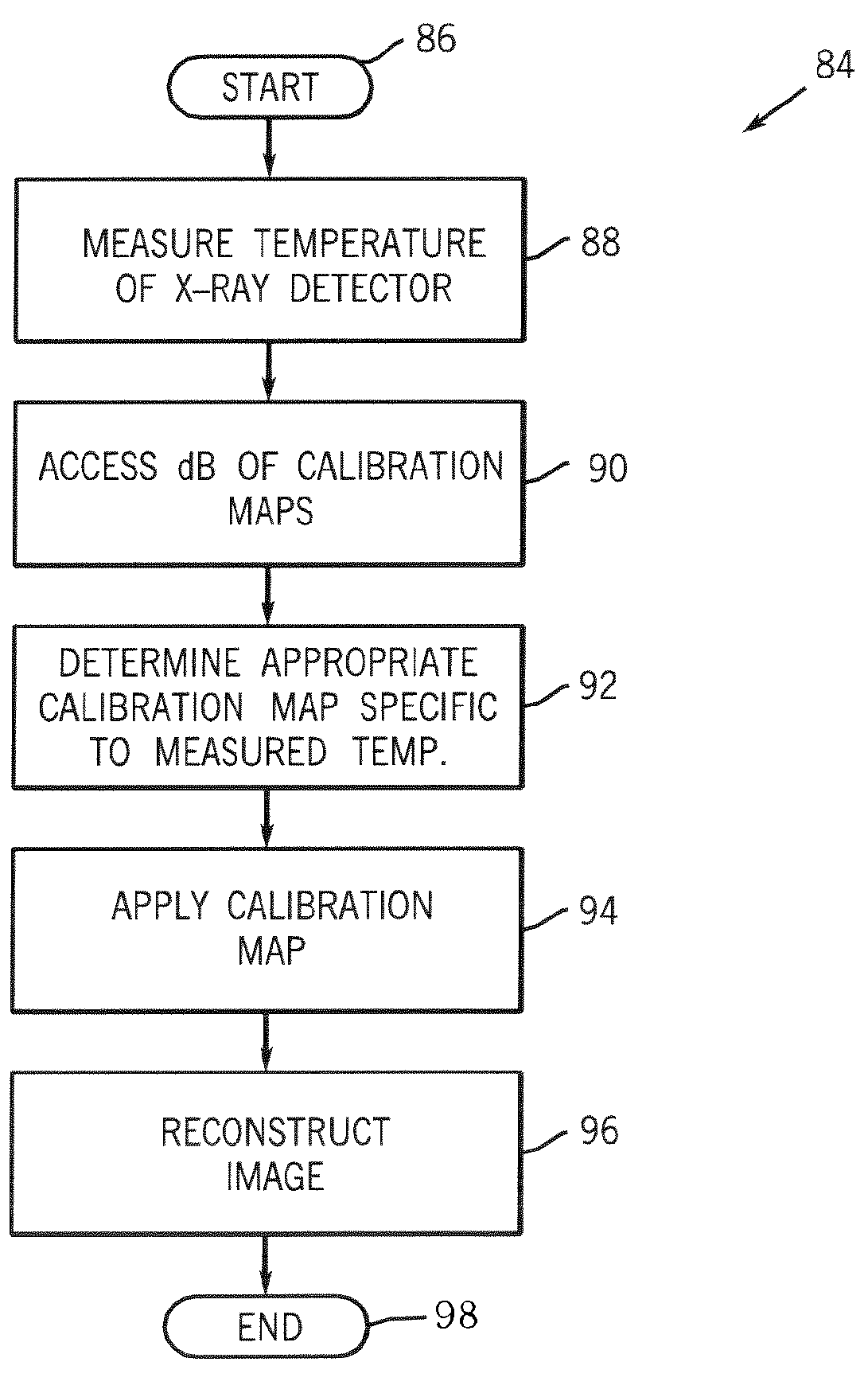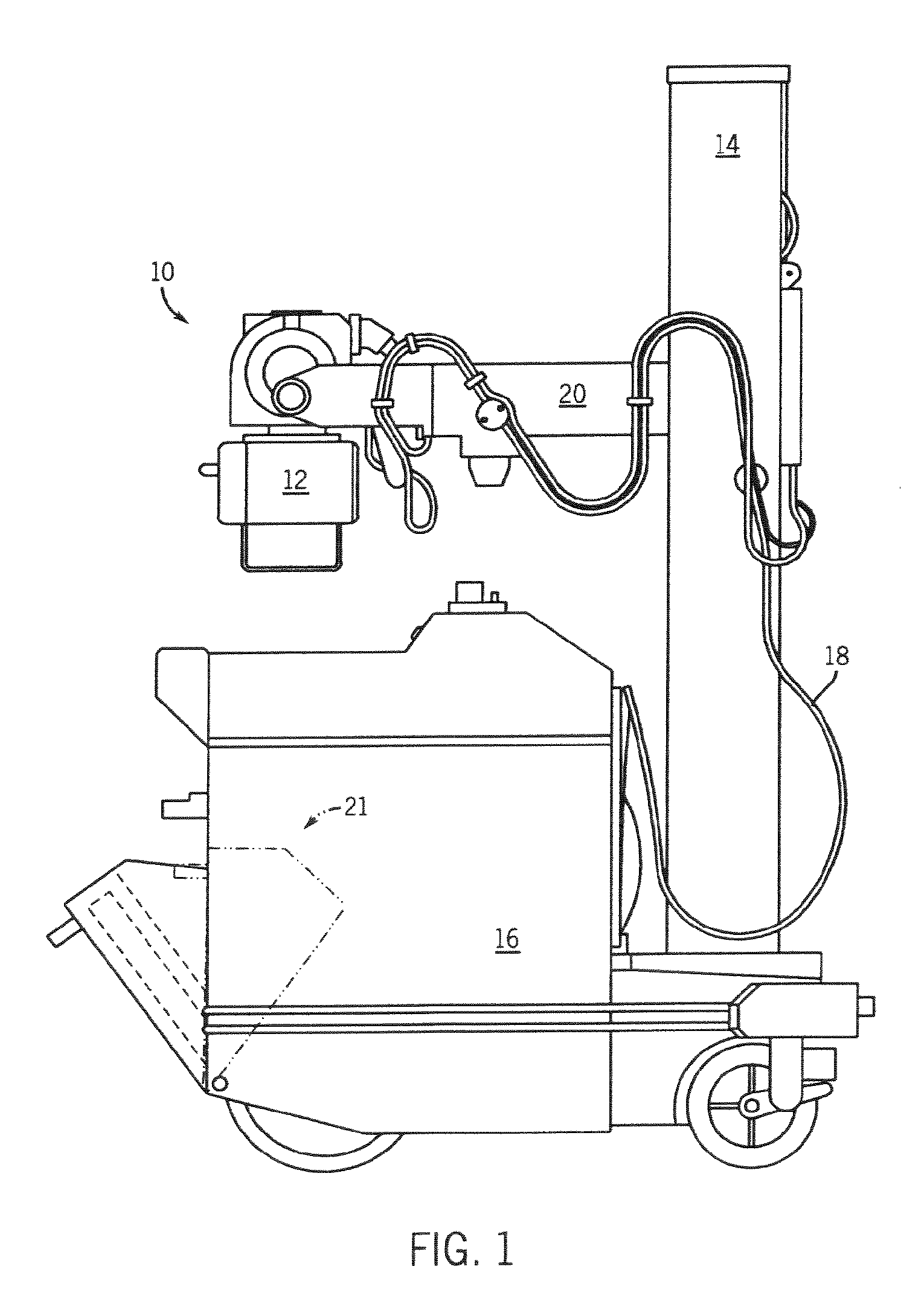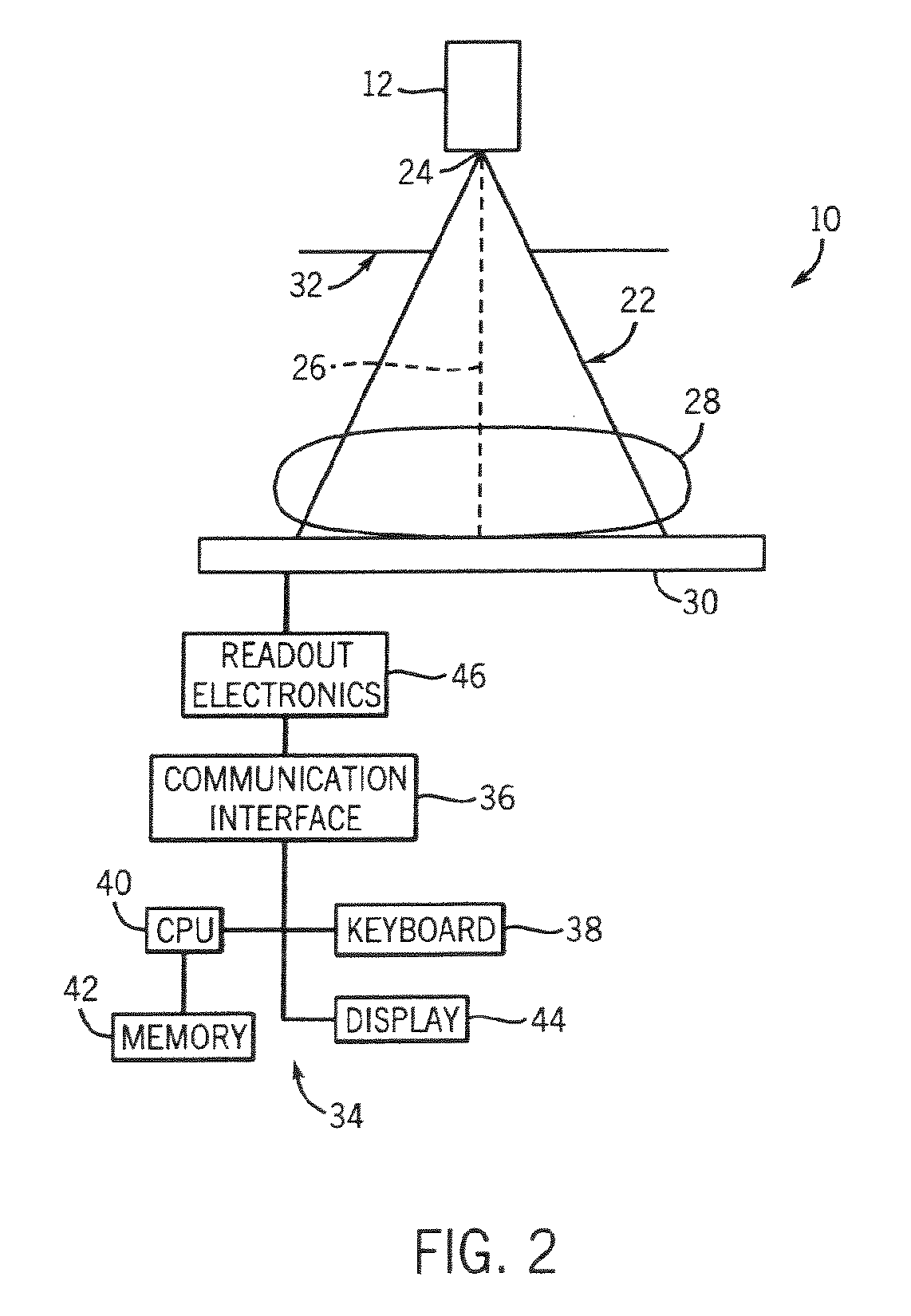Method and system of x-ray data calibration
a technology of x-ray data and calibration method, which is applied in the field of diagnostic imaging, can solve the problems of increasing the size, weight and complexity of the detector, difficult to timely maintain the detector temperature during heavy detector usage periods, and the x-ray detector may not sufficiently cool between data acquisitions to maintain the desired thermal equilibrium
- Summary
- Abstract
- Description
- Claims
- Application Information
AI Technical Summary
Benefits of technology
Problems solved by technology
Method used
Image
Examples
Embodiment Construction
[0037]The present invention will be described with respect to a flat panel, solid-state, indirect detection, and portable digital x-ray detector for use with a mobile x-ray imaging system. However, the present invention is equivalently applicable with other types of x-ray detectors including direct detection digital detectors. Additionally, the present invention may be used with stationary or fixed room x-ray imaging systems. Further, the present application makes reference to an imaging “subject” as well as an imaging “object”. These terms are interchangeable and are not intended to limit the scope of the appending claims.
[0038]Referring now to FIG. 1, an exemplary mobile x-ray imaging system 10 applicable with a portable x-ray detector incorporating the present invention is shown. An x-ray source 12 is mounted or otherwise secured to an end of horizontal arm 20. Arm 20 allows the x-ray source 12 to be variably positioned above a subject in such a manner so as to optimize irradiati...
PUM
 Login to View More
Login to View More Abstract
Description
Claims
Application Information
 Login to View More
Login to View More - R&D
- Intellectual Property
- Life Sciences
- Materials
- Tech Scout
- Unparalleled Data Quality
- Higher Quality Content
- 60% Fewer Hallucinations
Browse by: Latest US Patents, China's latest patents, Technical Efficacy Thesaurus, Application Domain, Technology Topic, Popular Technical Reports.
© 2025 PatSnap. All rights reserved.Legal|Privacy policy|Modern Slavery Act Transparency Statement|Sitemap|About US| Contact US: help@patsnap.com



